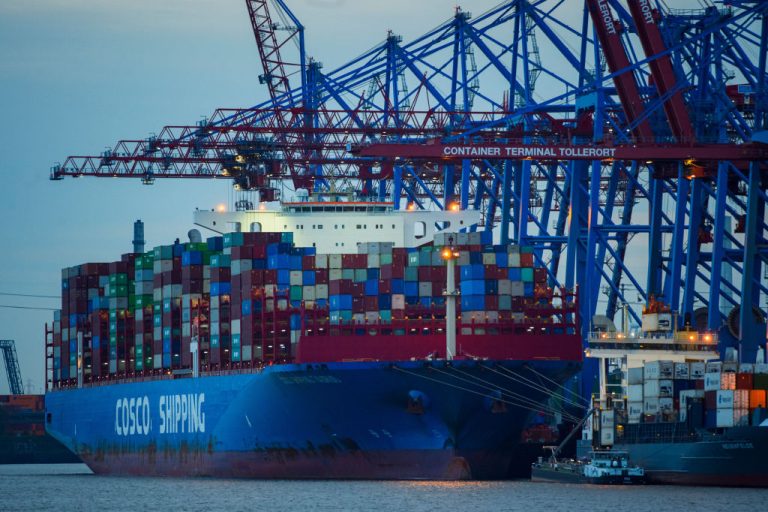News analysis
In recent years, Chinese companies have begun a massive push to buy up ports all over the world — with Shanghai-based COSCO Shipping at the forefront.
As of March of this year, state-owned COSCO Shipping owns and operates more than 400 container ships operating in and out of 558 ports worldwide, according to Statista. Along with hundreds of tankers and other vessels, COSCO has become one of the world’s top three largest port operators.
MORE ON CHINA:
- China’s Guangzhou in Revolt Over Newest COVID Lockdown
- China’s Xi Confronts Canada’s Trudeau at G20 Over Media Leaks
- Biden Pledges Cooperation Alongside Competition After 3-Hour Meeting With China’s Xi
- China’s Trade Unexpectedly Shrinks as COVID Curbs, Global Slowdown Jolt Demand
COSCO also represents a potentially effective way for the Chinese Communist Party (CCP) regime to exert geopolitical influence around the world, without having to resort to overt state agencies or the military.
Despite China’s People’s Liberation Army (PLA) Navy having only one international base — located in Djibouti on the strategically significant Horn of Africa — replenishment and other logistical support could be distributed by COSCO vessels. In theory, this means Beijing could operate out of anywhere, as long as its ships can dock.
Success
You are now signed up for our newsletter
Success
Check your email to complete sign up
Companies like COSCO acting as an extension of the Chinese state also pose a threat to Taiwan, the self-governing island that Beijing hopes to bring under its control.
Control of global supply chains
Following Russia’s invasion of Ukraine in early February, many of the world’s leading shippers either completely halted deliveries, or vastly reduced shipments in and out of Russia. However, according to Container News, COSCO ships not only continued supplying goods to Russia, but increased their purchasing volume of Russian crude oil.
The move in turn provided “economic success for Russia as it faces a barrage of economic sanctions,” London-based GlobalData analyst Sathiya Jalapathy said in March.
Experts argue that COSCO’s mission statement of “building a global terminal network with controlling stakes,” is therefore not as innocent as it sounds. For decades now, the Chinese Communist Party (CCP)’s ambitions of expanding its global outreach have included projects such as the Belt and Road Initiative, and developments in trade and foreign investments.
But whether Beijing can continue effectively expanding its influence in global supply chains remains to be seen. The CCP has gone with almost two years of “zero-COVID” measures that have taken a steep toll on China’s manufacturing, faltering real estate, and the national economy, while sparking widespread social unrest.
Internationally, the draconian lockdowns have also severely downgraded China’s attractiveness to foreign investors, as the world saw supply chains disrupted, production runs halted, and a host of other problems caused by Beijing’s obsessive drive to stamp out the novel coronavirus.
At the same time, efforts to continue expanding China’s global influence have not slowed. According to Asia Nikkei, in 2021, the PLAN mounted the “biggest peacetime naval buildup the world has ever seen,” involving both the private sector and state-owned companies to brand Beijing as a “military-civil fusion” entity.
“Chinese commercial entities, including shipping companies, are a key part of the integrated military-civilian logistics system,” Claire Chu, senior analyst with Janes, an open-source intelligence firm focused on the defense sector, told Asia Nikkei.
Last year, COSCO’s reported revenue of $1.2 billion was up nearly 21 percent from 2020, with operating profit soaring by nearly 26 percent to reach $171 million.
“The key risks we see are with respect to potential demand slowdown due to the Russia-Ukraine war and impacts from rising inflation,” said Parash Jain, HSBC’s global head of shipping and ports equity research, told London-based The Financial Times.
“But for now, the persistent congestion which many industry participants believe will last through the peak season this year will keep rates elevated,” he said.














